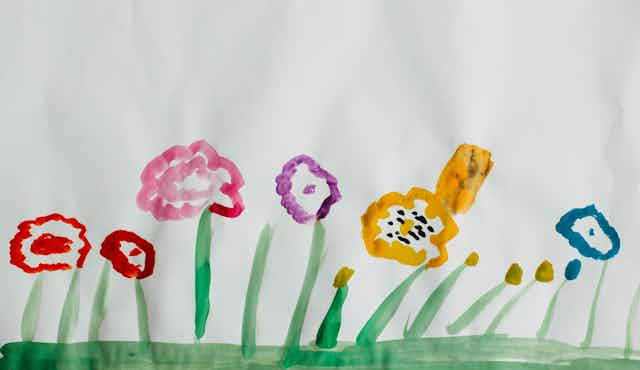On Wednesday, federal parliament passed Labor’s bill to reduce childcare fees for many Australian families.
More affordable childcare for families is great, but it will not solve all the issues in the sector. Schools are not the only ones with a teacher crisis. Early childhood services are also hit with chronic staff shortages.
As of October, there were about 6,800 advertised positions for early childhood educators in Australia. The pandemic has not helped. There was a 40% increase in job ads between April 2021 and April 2022.
Before COVID-19, there was about 30% annual turnover in the sector, and up to 45% in rural and remote areas. A 2021 union study of more than 3,800 educators revealed 74% said they wanted to leave the sector in the next three years. The top reasons for wanting to leave were excessive workload, low pay and feeling undervalued.
Read more: COVID chaos has shed light on many issues in the Australian childcare sector. Here are 4 of them
This turnover can impact upon children’s wellbeing, development and learning.
To find out more about the challenges educators face, how it impacts upon their wellbeing and learn from other countries, our international study explored the experiences of early childhood educators around the world.
This article looks at the Australian and Canadian components of the study.
Australian educators’ experiences
As part of our research, we surveyed 51 early childhood educators in Australia in 2021, which found parts of their job threatened their wellbeing. They painted a picture of an important job that is not valued financially and not respected by the broader community.

They talked about work being done “from the love of your heart”, rather than being rewarded with adequate pay. They also spoke about early childhood services exploiting the goodwill of educators.
All those extra toys you see in rooms, fancy art shows, are all topped up and financed by [staff].
Educators talked about the pressure to meet the needs of parents and children and government regulations.
All of us have stressful days […] managing behavioural issues, parents’ demands and a lot of routine tasks.
Meanwhile, there was an “obscene” amount of administrative work and repeated stories of staff fatigue and burnout.
We are burnt out and leaving the industry in droves because rather than having quality educators we are getting pushed for quantity. Children are being seen as a commodity and it needs to stop.
What could we learn from Canada?
Our study also surveyed educators involved in a program in Canada, where peer support has been used to boost the wellbeing of early childhood educators.
Up to 50% of early childhood educators in British Columbia had been leaving the sector in their first five years.
The Peer Mentoring Program began as a pilot project in 2016 and expanded across the province of British Columbia to 17 sites in 2019. Currently, the program is used in 25 locations across British Columbia.
In the program, educators were organised into groups of 12 (six more junior, six more experienced) and one or two facilitators.

The groups meet in person once a month to talk and share experiences. They may invite a guest speaker, depending on the group’s interest, and each group receives funds for this purpose. They can also organise professional development as part of their meetings as opposed to a one-off workshop.
In addition to the monthly face-to-face group gatherings, junior and mentor educators are paired up and meet weekly, either face-to-face, online, or by telephone to support each other.
Why is it effective?
In 2020, we conducted 17 focus groups with approximately 200 early childhood educators who were part of the peer mentoring program.
Participants in the program said it gave them a space to talk without judgement or recrimination. Participants said they felt safe, and mentally refreshed.
I would describe the […] program as going home, being with a group of people who […] allow you to be the best version of yourself.
One educator said the program allowed her to “thrive” instead of just “survive”:
you’re actually thriving and you have the enriching connections and conversations […] if we want to honour children’s time with their [play and educational] materials and with one another, we also need to honour our time with one another as well, to have that rich conversation.
Another mentor said it was empowering to be among other women.
I was like ‘do I get on the board?’, like I needed to be immersed in strong women, strong leadership […] just empowered people that are passionate about the same things that I’m passionate about.
Is it retaining staff?
Overall, educators say they have increased their connections to other educators, all of which has helped to sustain them in the field, avoiding burnout.
While retention of educators continues to be an issue in British Columbia, educators reported greater levels of confidence in their own abilities.
Anecdotally, educators and services have reported greater retention and a formal survey has been created to capture the data in 2023.
What now?
Australian governments and early childhood services are spending a lot to attract and train educators.
As part of this, some of the money would be well spent supporting the ongoing wellbeing of educators to keep them in this vital workforce.

